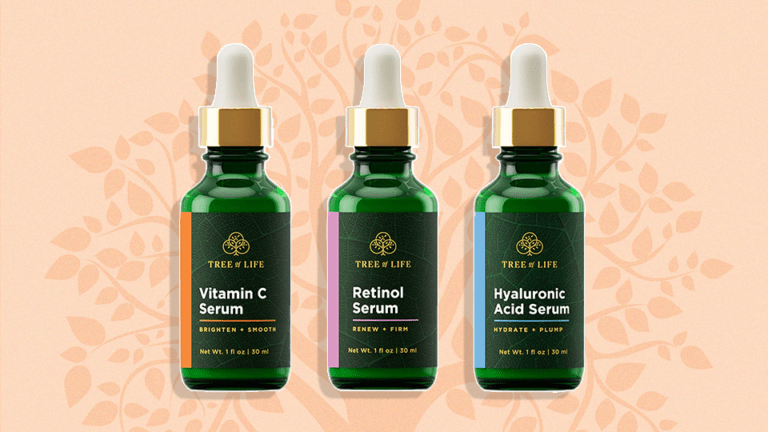How sweet fruits—like strawberries, blueberries, and blackberries—can help you stay healthy over the years

Berries provide potassium, magnesium, vitamins C and K, and fiber—plus, they can help reduce the risk of several age-related conditions.
By Lisa Lombardi
Of all the luscious, healthy fruits to choose from, fresh berries—like strawberries, blueberries, and blackberries—may be the cream of the crop. They are top sources of vitamins, minerals, and disease-fighting nutrients that can help reduce the risk of several age-related conditions. Yet they are also highly perishable and often expensive, which may make you hesitant to purchase them. But this is prime berry season, especially for strawberries, which are key to many summer celebrations, such as Juneteenth and Fourth of July. Here’s why you should be buying and eating berries often, plus shopping and storage tips to lower their cost and make them last longer at home.
Body Benefits
Among their many nutritional perks, berries provide potassium, magnesium, vitamins C and K, and fiber. They’re low in calories and relatively low in natural sugars, and they contain prebiotics—carbohydrates that help feed healthy gut bacteria.
Many of their benefits are attributable to anthocyanins (compounds that give many fruits and vegetables their red, purple, and blue colors). Eating blueberries, a rich source, three times a week may help lower the risk of type 2 diabetes, according to a 2013 study in the journal BMJ. And in a study that followed people for up to 24 years and was published in 2016 in BMJ, those who regularly ate foods high in anthocyanins—mostly blueberries and strawberries—gained less weight than those who ate them infrequently.
Blueberries and strawberries are heart-healthy, too. According to a study of more than 90,000 women published in the journal Circulation, people who ate these berries more than three times a week vs. once a month or less over an 18-year period had a 34 percent lower risk of heart attack. And in a 2019 American Journal of Clinical Nutrition study, eating the equivalent of a cup of blueberries a day for six months improved heart-health measures in overweight and obese adults with metabolic syndrome. (This condition raises the risk of heart problems and type 2 diabetes.) Regularly eating blueberries has also been shown to help lower systolic blood pressure.
“On average, people who eat more berries seem to live a little bit longer,” says Eric Rimm, ScD, a professor of epidemiology and nutrition at Harvard’s T.H. Chan School of Public Health who has researched berries. He suggests enjoying a cup of berries a day to reap the benefits.
Fuel for the Brain
Blueberries, strawberries, and raspberries are also powerful foods for learning and memory, says Barbara Shukitt-Hale, PhD, a neuroscientist at the Jean Mayer USDA Human Nutrition Research Center on Aging at Tufts University in Boston. According to a 20-year Harvard study of women 70 and older, eating blueberries at least once a week or strawberries at least twice a week may delay cognitive aging by up to two-and-a-half years. And in Shukitt-Hale’s research, older men and women who ate the equivalent of 1 cup of fresh blueberries every day for three months did better on learning and memory tests than those who were given a placebo. Ongoing research suggests that strawberries and raspberries may have similar benefits, she says.
Shopping and Storage Tips
Locally grown berries are the freshest, so look for them at your farmers market or supermarket. Plus, the price is best when berries are in season and most abundant in your area, says Joan Salge Blake, RDN, a nutrition professor and host of SpotOn!—a podcast about nutrition and health—at Boston University. If there are two-for-one sales, consider buying extras to freeze for year-round use. “Freezing doesn’t destroy any of the compounds—in fact, it may preserve some,” Shukitt-Hale says.
To help fresh berries last longer at home, store them in a covered container in your refrigerator and don’t rinse them until you’re ready to eat them, Salge Blake says. (Lining a container with paper towels and removing the stems from strawberries will also help make them last for a week.)
Berry Nutrition Highlights
• Blackberries have the most potassium (233 mg per cup) and almost as much fiber as raspberries.
• Blueberries have compounds that help generate new nerve cells in the brain and increase their communication.
• Raspberries (red, black, and golden) have the highest amount of fiber—8 grams per cup—of any of these berries.
• Strawberries are rich in vitamin C: about 85 mg per cup. (The daily need for men is 90 mg; for women, 75 mg.)
Editor’s Note: A version of this article also appeared in the July 2021 issue of Consumer Reports On Health.
Consumer Reports is an independent, nonprofit organization that works side by side with consumers to create a fairer, safer, and healthier world. CR does not endorse products or services, and does not accept advertising. Copyright © 2023, Consumer Reports, Inc.
This content was originally published here.




















